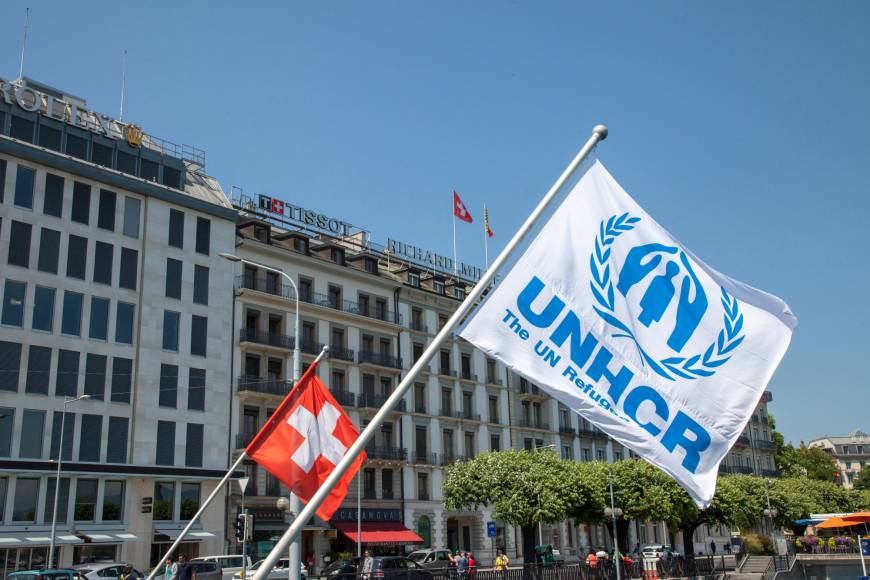Kansai University to accept refugee student under United Nations program
by Kantaro Komiya, Contributing Writer, The Japan Times Jun 20, 2018

Kansai University will join a group of universities in Japan and accept refugees through a program of the United Nations High Commissioner for Refugees. | GETTY IMAGES
Kansai University will begin accepting applications from refugees through a United Nations High Commissioner for Refugees program and plans to admit one student for the 2019 academic year starting in April.
The Refugee Higher Education Program, which was launched in 2007 at Kwansei Gakuin University, has since expanded to seven other private universities in Japan. The schools pay entrance and tuition fees for the students and some universities offer additional scholarship stipends on a monthly basis. In the case of Osaka Prefecture-based Kansai University, it will offer a monthly stipend of ¥80,000.
The initiative supports individuals who have already been granted refugee or similar special status by the government and are seeking to complete a four-year undergraduate program.
By the 2018 academic year, the eight institutions had accepted approximately 50 students under the program, according to Japan for UNHCR, which manages the program together with the U.N. agency’s Tokyo office. Of the eight schools, four have provided courses conducted in English.
A Kansai University spokesman said the institution’s participation in the program will benefit refugees seeking higher education in western Japan, since all other participating schools — except Hyogo Prefecture’s Kwansei Gakuin — are located in Tokyo and its vicinity.
The school, which decided earlier this month to join the program based on a recommendation from Meiji University, one of the participating institutions, said it also aims to promote campus diversity by accepting refugees.
The university will accept applicants recommended by the Japan office of the UNHCR and conduct its own screening this fall for admission in the next academic year.
“It might be easy to raise the banner of ‘diversity,’ but it is not so common to have the actual opportunity to be involved in it,” said Mitsuo Ueda of Kansai University’s President Support Division.
Through the program, Ueda said, “We will foster better understanding of refugees among students as well as faculty and staff.”
Waseda University and Hiroshima City University are also preparing to join the program.
Waseda plans to become the first school to accept graduate students through the program, while the Hiroshima university will be the first public school to take part in the initiative.
But even with an increase in the number of schools accepting refugees, screening procedures remain as selective as Japan’s official refugee policy.
In the 2018 academic year, four refugee students enrolled at four different universities through the initiative, although up to 11 spots at eight universities were available, according to Japan for UNHCR.
A program manager with the nonprofit organization acknowledged there are “big hurdles for the application,” including the government’s strict refugee policy and Japanese language ability. Applicants also have to be legally living in Japan in order to participate.
In addition to the UNHCR program, universities have been accepting Syrian refugees under an initiative unveiled by Prime Minister Shinzo Abe in 2016.
Through the initiative, known as the Japanese Initiative for the Future of Syrian Refugees, the government-linked Japan International Cooperation Agency recruited 19 Syrian students in 2017, the first year of the program. They enrolled as either master’s or research students in 11 universities in Japan. JICA is currently preparing to accept around 20 Syrians for the second year, which will start this September. It plans to accept up to 100 students from the war-torn country in total over five years, while the education ministry also plans to accept 50 students.
仲間募集中
週1回1時間から働ける柔軟で明るい職場で、子育てママや社会人学生も在籍。
すぐに考えていないけれど、少しでも御関心があれば、とりあえず雑談させて下さいませ。


